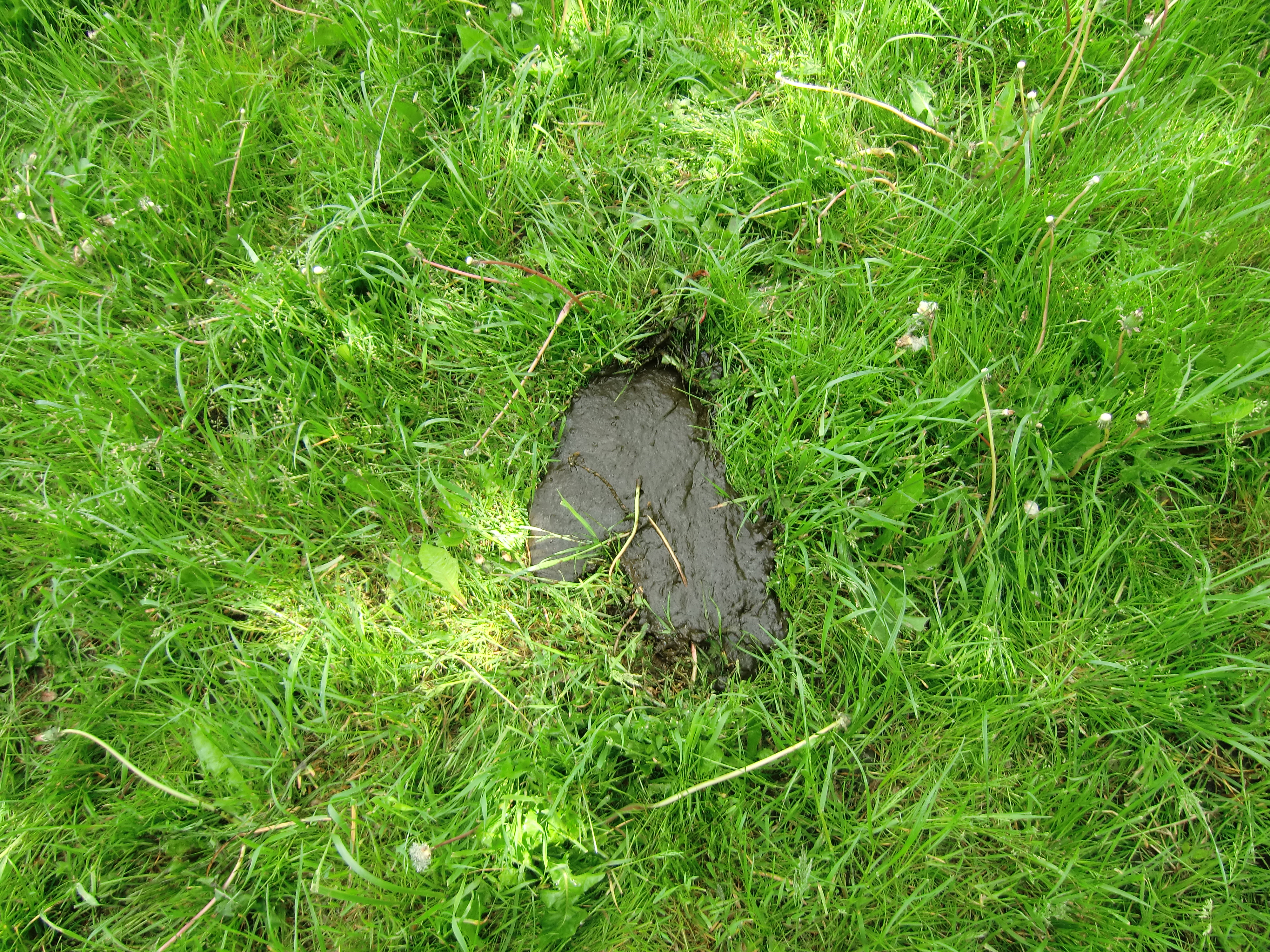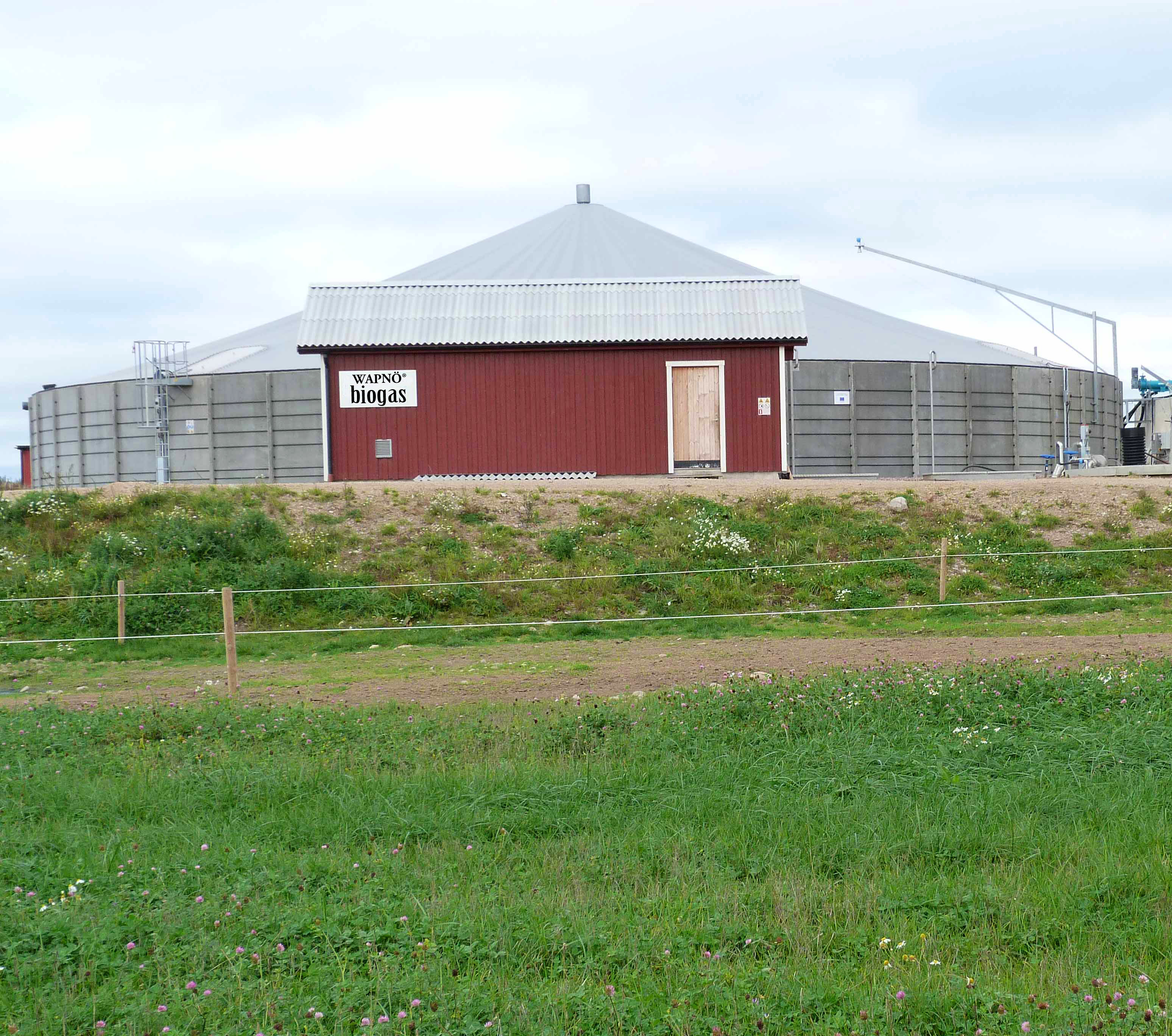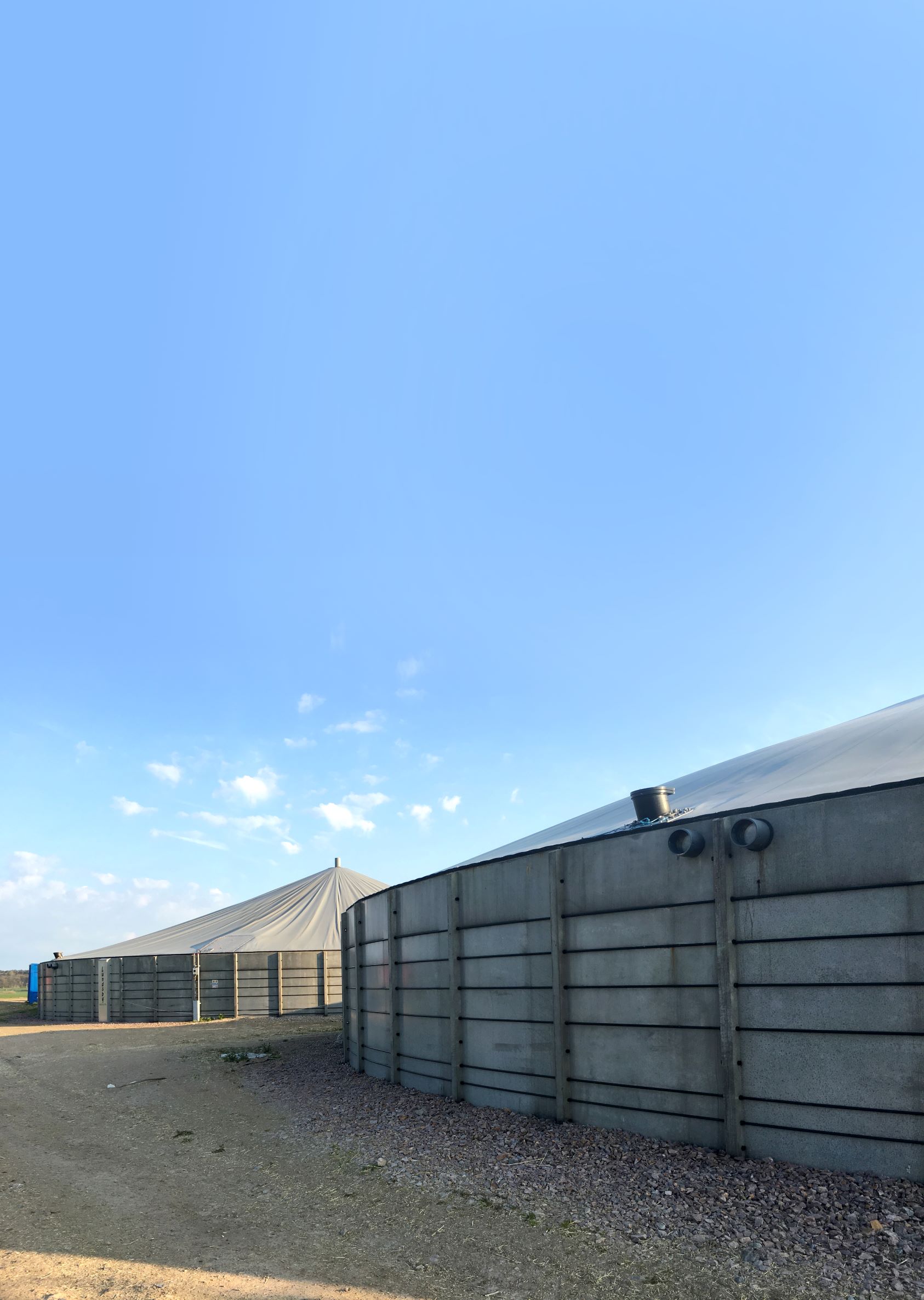Wapnö Biogas
Hereproduced (Härproducerat®) renewable energy!
Our biogas plant is really energy and environmentally smart. In the biogas, cow manure is digested, which gives us renewable energy in the form of electricity, heating and cooling. It is a local effort for the global environment. "Here-produced" energy that covers approx. 90% of the energy consumed on the farm. Creating the most energy and environmentally optimized biogas plant on the farm has been a challenge but has resulted in a fantastic energy plant. Thanks to the farm's strong belief in development, together with the Swedish Energy Agency and local companies, Wapnö now has an energy plant that, compared to a preliminary study, far exceeds expectations in terms of energy production. How about 60% more electricity and heat, which with the help of absorption technology becomes cooling for the milking, the farm shop, the dairy and the brewery.
Wapnö energy plant is based solely on the farm and it is the animal manure that is used for biogas production. Nothing may be used directly from the field as the field must produce food for humans and animals.
Wapnö Energy Plant provides renewable energy and is not a waste plant as nothing is transported there with large trucks. Here, everything is based only on the farm's own raw materials and needs. The purification chambers are fed with approx. 36,000 tonnes of liquid manure, 3,000 tonnes of solid manure and approx. 700 tonnes of feed residues. In the digestion process, approx. 3,000 tons are converted into energy, leaving 37,000 tons of high-quality plant nutrients that are used for the farm's crops.
At Wapnö, we make it easy for you to both choose tasty dairy products and reduce your climate footprint at the same time. With cows and dairy on the same farm, we have removed an entire transport route. Here, the milk flows only 30 meters in a pipe directly from the barn to the dairy.
Milk from Wapnö Gård has approx. 70% lower greenhouse gas emissions compared to other dairy farms. It is climate smart with cows & biogas on the same farm. Most of milk's climate impact occurs on the dairy farms.
Milk from Wapnö Gård = approx. 0.35 CO2e per liter of milk*
Milk from a regular Swedish farm = approx. 1.10 CO2e per liter of milk
*According to the public calculation tool, Vera, developed by the Swedish Board of Agriculture












